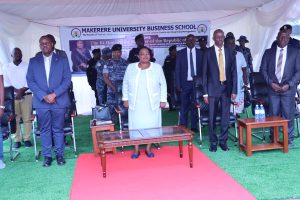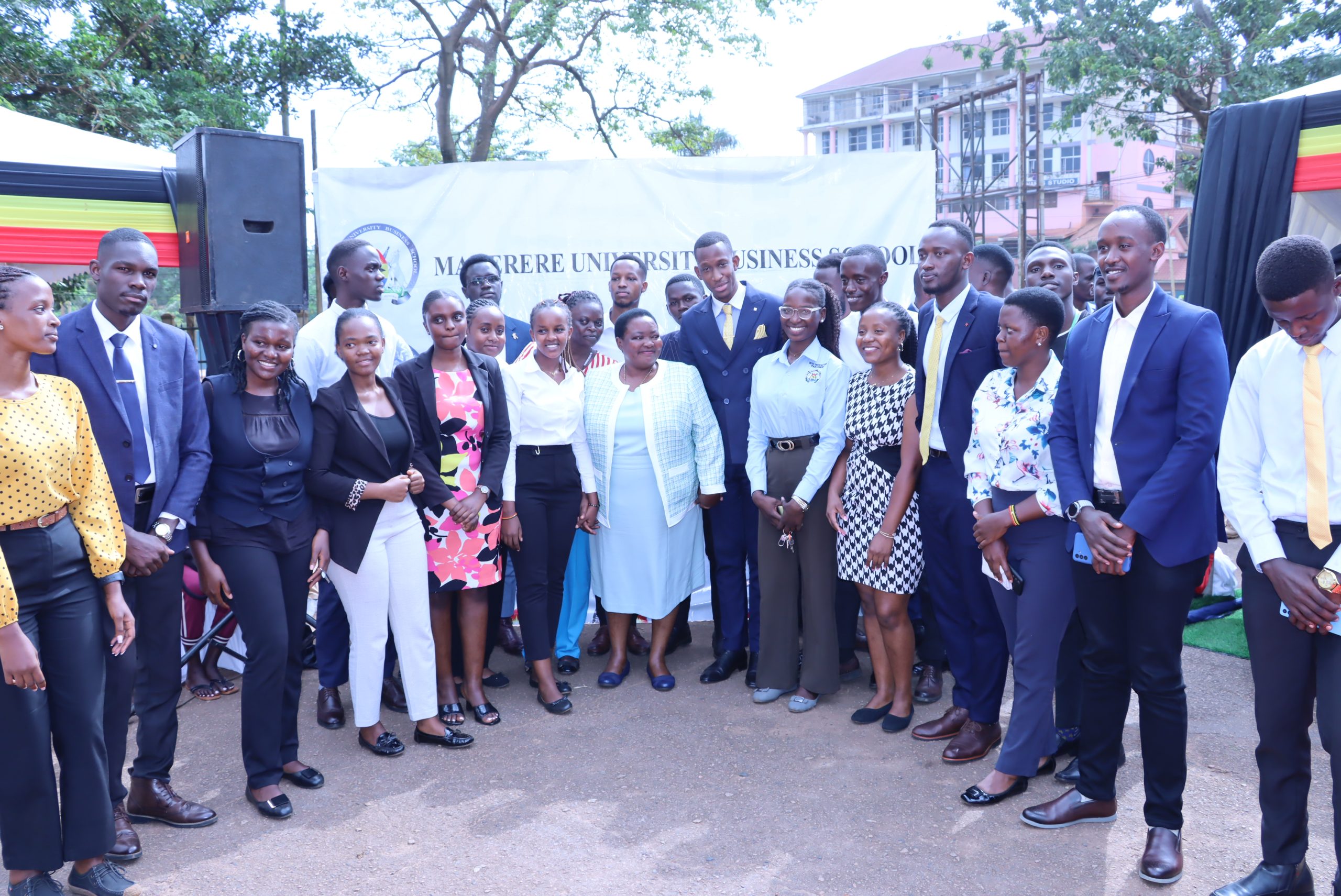By: Ismael Kasooha
KAMPALA
The Prime Minister Rt. Hon. Nabbanja Robinah has called upon the young generation to embrace competence-based courses to reduce on the unemployment problem in the country.
Nabbanja said that a capacity-based degree program gives one a chance to focus on learning and appreciating new topics and obtains credit for what they already have learned through work or life experience.

The Premier Rt. Hon. Nabbanja Robinah arriving at MUBS
She said this means that one combines training, skills experience and knowledge and their ability to apply them to perform a task.
“With competence –based degrees and programs, one gets a more flexible learning environment that allows even working professionals like some of you in here to earn a degree and these programs focus on assessing your mastery of specific skills and knowledge rather than relying solely on traditional school time schedules and class structures. Therefore, such programs are ideal for self-directed learners and experienced adult students, allowing them to showcase existing skills and accelerate through familiar materials,” noted Nabbanja.

Rt. Hon. Robinah Nabbanja (centre) at the event at MUBS
Nabbanja made the call on Wednesday while on her maiden working visit to Makerere University Business School (MUBS) Nakawa in Kampala.
Nabbanja met and addressed students of the Faculty of Tourism, Hospitality and Languages in the Department of Leisure, Events and Hospitality Management.
Nabbanja urged students to focus on eco-tourism and community-based tourism.
“Engaging local communities in conservation and tourism activities not only protects our environment but also empowers people economically. As tourism professionals, you will be at the forefront of these efforts,” said Nabbanja.
Nabbanja, is an alumna of MUBS and trained in Hotel Management in the 1990s.
The Premier noted that there have been efforts to increase the stock of skilled personnel in tourism industry.
Currently, Uganda has 123 institutions offering training in the field of tourism, majority of them being privately owned. These institutions graduated 7,957 Ugandans in the academic year 2018/19 (before COVID-19) in tourism related courses.
“The Government has set a target to grow the economy ten-fold within 15 years from the current GDP of about US$ 50 billion to US$500 billion by the year 2040. It will leverage Uganda’s tourism potential to achieve part of the growth. In line with this, the Tourism Development Program has been tasked to grow tourism foreign exchange earnings to US$ 50 billion over the same period,” she said.
Nabbanja said that government counts on the young generation to improve on skills in tourism to ensure the realization of tourism’s expected contribution to the economy, and improving the livelihoods of Ugandans.
“In this digital age, the way we promote tourism has changed. More and more tourists are using online platforms to choose their travel destinations. I encourage you to embrace technology and digital marketing as powerful tools to market Uganda’s tourism globally,” she said.
Nabbanja noted that Uganda’s beauty can be showcased to the world through social media platforms, websites, and virtual tours.
“With the right digital strategies, we can create a greater online presence for Uganda and attract tourists who may have never considered visiting us before,” she said.
Martin Mugarra Bahinduka told students that leisure or hospitality sector employs many people in the country and also earns the country a lot of foreign exchange.
“I wish to assure you that government will continue supporting the tourism and hospitality sector for the good of the country,” said Mugarra.
Mugarra asked the students to have humility and avoid conflicts because of having divergent views and desist from insulting other people because they don’t belong to the same political ideology.
Balamu Barugahara, the State Minister for Children and Youth Affairs shared with the students that he has employed himself for the last 25 years and has been employing hundreds of people.
Balamu said that many rich people have made money from hotels and hospitality and are billionaires in the whole world.
“So you are getting a degree to go and start up your business. These courses enhance employability so don’t undermine them,” advised Balamu.
The event ran under the theme “Reflecting on the roles of competence-based degree programs on economic and social transformation: A case of bachelor of Leisure, Events, and Hotel Management,”
End





